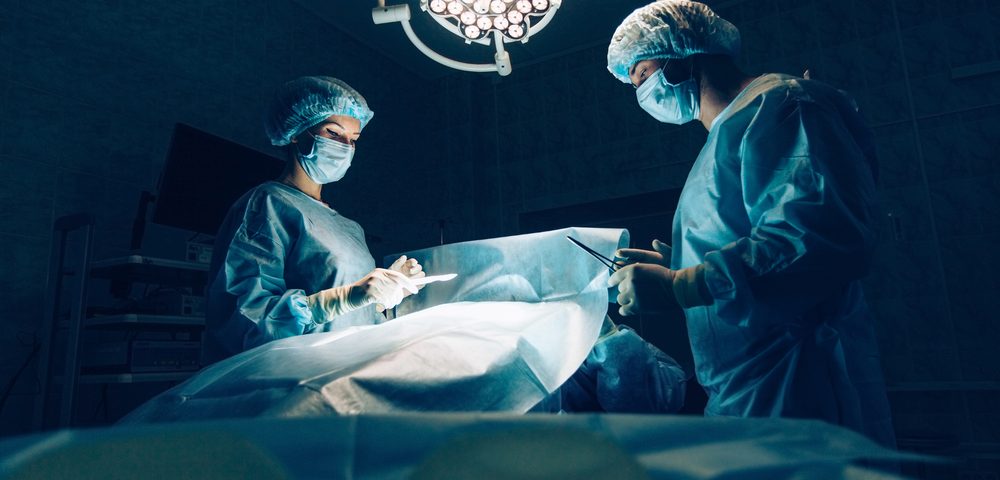Removing lymph nodes to check for signs of breast cancer may not be necessary for women with triple-negative or HER2-positive breast cancer who responded well to chemotherapy before surgery to remove the tumor, new research suggests.
Two presentations at the 11th European Breast Cancer Conference show that these patients have a very low risk of cancer cells spreading to nearby lymph nodes.
The first study, titled “Her2 positive and triple negative breast cancer patients with clinically negative nodes at diagnosis and breast pathologic complete response may spare axillary surgery after neoadjuvant treatment,” examined a group of 90 breast cancer patients with either HER2-positive or triple-negative breast cancer, two aggressive forms of breast cancer.
All patients received chemotherapy to shrink their tumor before undergoing surgery to remove it. To check for signs of cancer spreading (metastasis), patients were submitted to ultrasound scans followed by pathology tests.
Before treatment, 60 percent of the patients had no signs of cancer spreading to the lymph nodes. After chemotherapy, the number of patients free of cancer cells in lymph nodes increased to 96.3 percent. Only two patients were positive for cancer cells spreading to the nearby lymphatic system. Twenty-three women (42.5 percent) showed no signs of cancer cells in the breast and on the lymph nodes.
Among patients who already had signs of cancer in their lymph nodes before treatment, 17 patients (47.2 percent) had no signs of cancer in the breast following treatment. Among this group, the majority, or 76.5 percent, were classified as cancer-free in the lymph nodes.
“Our results suggest that giving chemotherapy to patients with these types of breast cancer before considering surgery offers the possibility of reducing or even avoiding surgery,”Christian Sisó, a breast surgeon at the University Hospital Vall Hebron, Barcelona, Spain, and the study’s lead author, said in a press release. “By giving drug treatment first we are able to see how well the drugs work against an individual tumour. If they are working well, they can clear cancer cells from the lymph nodes and in the breast.”
“In women who had no signs of cancer in their lymph nodes and where treatment seems to have cleared the cancer in the breast, lymph node surgery might be avoided. On the other hand, in women who had signs of cancer in their lymph nodes before treatment, there is still a risk that the disease will remain there, even when it has been successfully treated in the breast itself,” he added.
In a second study at the Netherlands Cancer Institute (NKI) – Antoni van Leeuwenhoek Hospital, researchers studied 294 breast cancer patients treated at the NKI from January 2013 to September 2017.
All patients were negative for signs of cancer in their lymph nodes before undertaking chemotherapy. After treatment, all patients with HER2-positive breast cancer were negative for tumor cells in their sentinel lymph nodes, and only 1 percent of patients in the triple-negative tumor group were positive for cancer spreading to the breast lymph nodes. Also, only 2 percent of patients with low-grade tumor had cancer cells in their lymph nodes.
As in the previous study, all patients who responded completely to the chemotherapy were cancer-free in their lymph nodes.
“These results suggest that sentinel lymph node biopsies are most likely not needed in many women who undergo upfront chemotherapy and who have no sign of cancer in their lymph nodes before the start of chemotherapy. This could mean the side-effects of sentinel lymph node biopsies could be prevented in these women,” the study’s lead author, Marieke van der Noordaa, MD, said.
In an upcoming study, called the ASICS trial, researchers at the NKI will evaluate if skipping sentinel lymph node biopsies impacts the risk for cancer recurrence in the lymph nodes in patients with HER2-positive or triple-negative breast cancer, as well as patients with a low-grade tumor. Additionally, they will evaluate patients’ quality of life and overall survival.
The presentation was titled, “Omitting sentinel lymph node biopsy after neoadjuvant systemic therapy in selected breast cancer patients with clinical node-negative disease.”
“Whether or not a breast cancer has spread to nearby lymph nodes is a key indicator of a patient’s prognosis. That’s why sentinel lymph node biopsy has been an important part of treating breast cancer,” said Professor Robert Mansel, chair of the 11th European Breast Cancer Conference and Professor Emeritus of Surgery at Cardiff University School of Medicine, UK.
“These two studies give us clues on which patients have a very low risk of cancer in their lymph nodes after chemotherapy. This could enable us to reduce unnecessary surgery when it’s safe to do so, helping us tailor treatments towards individual patients,” he added.

